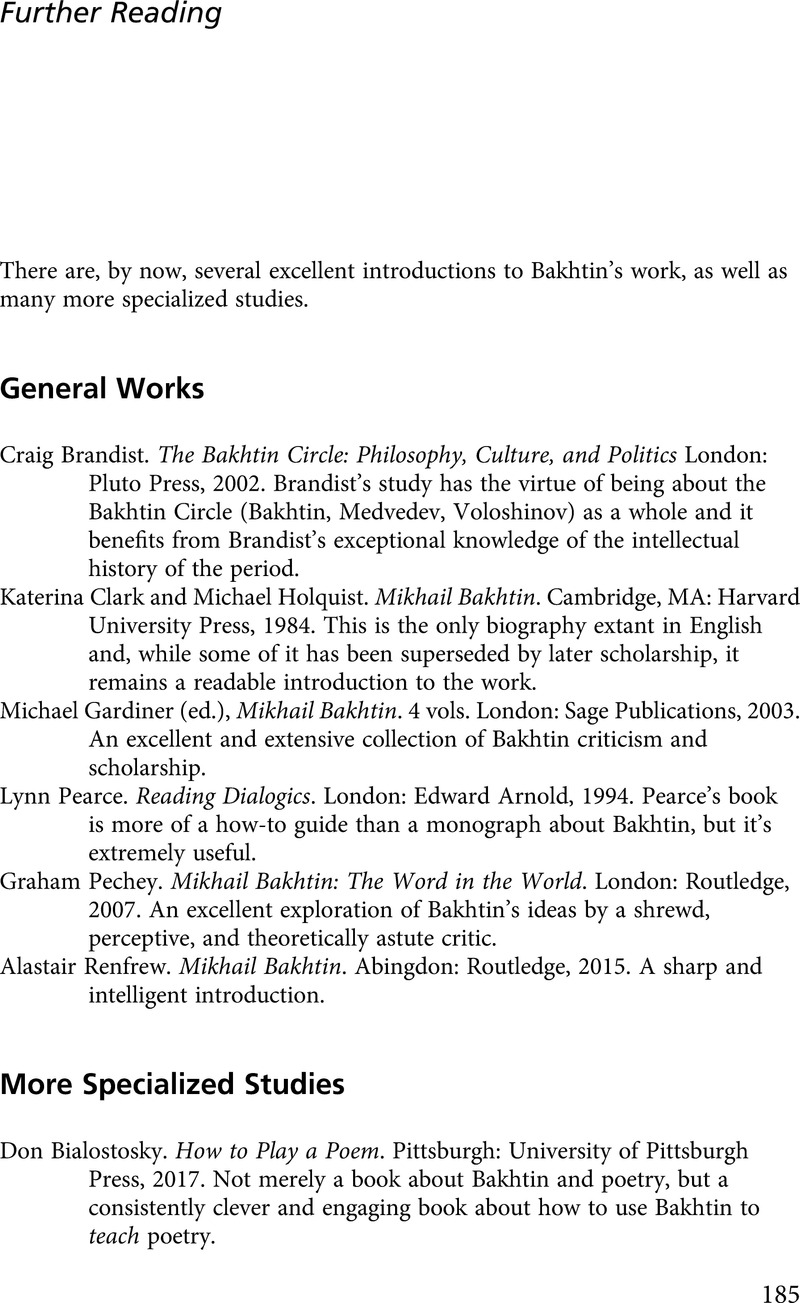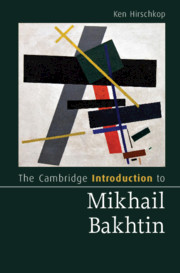Book contents
- The Cambridge Introduction to Mikhail Bakhtin
- The Cambridge Introduction to Mikhail Bakhtin
- Copyright page
- Contents
- Acknowledgements
- A Note on the Translations
- Chronology
- Abbreviations
- Chapter 1 Introduction
- Chapter 2 Life
- Chapter 3 Context
- Chapter 4 Works
- Chapter 5 Reception
- Chapter 6 A Brief Conclusion
- Notes
- Further Reading
- Index
- References
Further Reading
Published online by Cambridge University Press: 21 October 2021
- The Cambridge Introduction to Mikhail Bakhtin
- The Cambridge Introduction to Mikhail Bakhtin
- Copyright page
- Contents
- Acknowledgements
- A Note on the Translations
- Chronology
- Abbreviations
- Chapter 1 Introduction
- Chapter 2 Life
- Chapter 3 Context
- Chapter 4 Works
- Chapter 5 Reception
- Chapter 6 A Brief Conclusion
- Notes
- Further Reading
- Index
- References
Summary

- Type
- Chapter
- Information
- The Cambridge Introduction to Mikhail Bakhtin , pp. 185 - 186Publisher: Cambridge University PressPrint publication year: 2021

